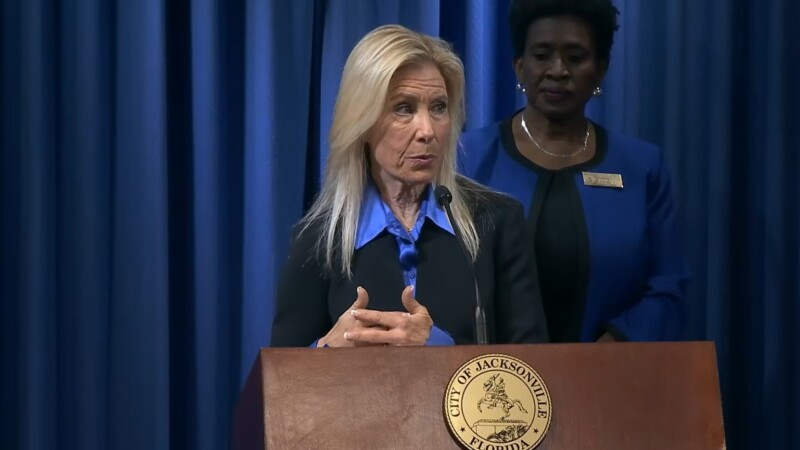Thank you, U.S. District Court Judge Marcia Morales Howard! We, the People, expect federal judges to review such settlement agreements with a gimlet eye, in the public interest, in the spirit of the late John J. Sirica (D.C.) and Miles Lord (Minnesota). Good call, your Honor! From The Tributary, by Charlie McGee):
Judge rejects deal in Jacksonville redlining case
A federal judge has rejected a settlement between the U.S. Department of Justice and Ameris Bank as written when the government publicly rolled out a case last month accusing the lender of discriminating against Black-majority neighborhoods in Jacksonville.
On Wednesday, U.S. District Judge Marcia Morales Howard denied a 28-page settlement jointly filed last month by the Justice Department and Ameris, a regional bank.
Howard said one sweeping paragraph wasn’t enforceable because all it required was for Ameris to obey existing anti-discrimination laws. “It appears to do no more than instruct [Ameris] to obey the law,” Howard wrote.
She said that while she “wishes to support the parties in their efforts to resolve this case,” they would need to refile the settlement without that paragraph or by explaining why they think Howard’s decision was wrong.
U.S. Attorney General Merrick Garland personally appeared in Jacksonville to announce the settlement last month, two years after he launched the Justice Department’s Combating Redlining Initiative, an effort to go after discriminatory lending practices.
As part of the settlement, Ameris has agreed to pay $9 million to help Black- and Hispanic-majority neighborhoods.
While Ameris disputed that it had violated federal housing laws, it said it agreed to settle to “avoid prolonged litigation.”
The settlement requires Ameris to invest $7.5 million of that $9 million in a loan subsidy fund that residents of Black-majority and Hispanic-majority census tracts can use for down payments, to lower their interest rates or to make home improvements. The bank also must spend $900,000 to reach residents, and it must invest $600,000 in community partnerships to increase access to mortgages and financial education.
The bank also agreed that at least three of its mortgage loan officers will be dedicated to serving Black- and Hispanic-majority neighborhoods, and the bank must hire a director of community lending to oversee its lending to those neighborhoods.
In an email to The Tributary, Ameris spokesperson Sheryl Touchton said the settlement “was sent back to rectify a minor issue” that doesn’t affect the overall contours of the deal.
“Ameris and the DOJ are working to make the necessary changes and will resubmit in the near future,” Touchton wrote. The Justice Department declined to comment.
The paragraph in question is an injunction barring any affiliate of Ameris “from engaging in any act or practice that discriminates on the basis of race, color or national origin that violates the [Fair Housing Act] in any aspect of a residential real estate-related transaction.” It also barred any future action that violates the federal Equal Credit Opportunity Act.
That’s too broad of an order, Howard wrote in the order Wednesday. By broadly barring Ameris “from engaging in any discriminatory act or practice that violates” specific laws going forward, “it appears to do no more than instruct [Ameris] to obey the law.”
The Justice Department informed Ameris it was being investigated for redlining in Jacksonville in January 2022.
Redlining originated when the U.S. government steered private lending in the 1930s away from Black-majority neighborhoods, depriving those neighborhoods of needed investment. The Fair Housing Act of 1968 and other civil rights laws outlawed the practice, but discriminatory lending has never been fully eradicated.
From 2016 to 2021, Ameris didn’t receive a loan application in one-third of the area’s Black- and Hispanic-majority census tracts, according to the government’s complaint. Among all of its loans in Jacksonville’s Urban Core, only two went to Black borrowers and none went to Hispanic borrowers.
At one point, Ameris sent 22,000 mailers advertising free checking services meant to target low- and moderate-income areas, but allegedly didn’t send a single one to a resident in a majority-Black or Hispanic neighborhood. The mailers featured exclusively white models.
The bank, which currently has 18 branches in the Jacksonville area, closed two branches “it had identified as having ‘minority’ populations ‘higher’ than adjacent Ameris branch[es]” in 2019. It had previously listed one of those branches among its “best financial performers,” per the complaint.
Ameris has denied the allegations. The Atlanta-based bank wrote in the proposed consent order that it agreed to settle the case only “to resolve this matter in order to avoid prolonged litigation.”
“We strongly disagree with any suggestion that we have engaged in discriminatory conduct,” Ameris chief executive Palmer Proctor said in a statement last month.
This story is published through a partnership between Jacksonville Today and The Tributary.
Charlie McGee covers poverty and the safety net for The Tributary. He’s also a Report for America corps member with The GroundTruth Project, an independent, nonpartisan, nonprofit news organization dedicated to supporting the next generation of journalists in the U.S. and worldwide. McGee may be reached at charlie.mcgee@jaxtrib.org. Follow him on Twitter @bycharliemcgee.
Lead image: U.S. Attorney General Merrick Garland came to Jacksonville in October to announce a settlement with Ameris Bank over redlining. | Will Brown, Jacksonville Today




No comments:
Post a Comment